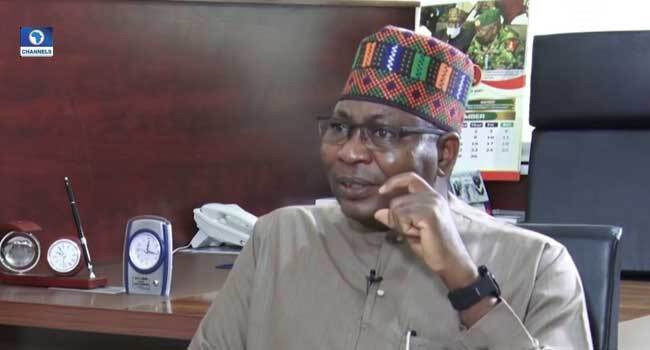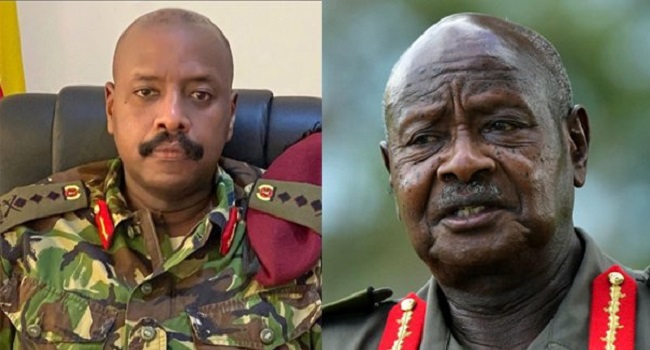
Former Director of Army Public Relations, Brigadier General Sani Usman, has said that hardcore elements should face justice as part of efforts to curtail banditry activities in some parts of the country.
Some north-western states have been ravaged by bandits who attack, steal and kidnap for ransom, thereby forcing some governors to shut down some schools in the region.
But speaking during an interview on Channels Television’s Newsnight, Usman frowned at the idea of granting amnesty to bandits.
He said that many public assets have been destroyed by both terrorists and bandits in Monguno, Baga, as well as several lives, were lost, thereby leaving many people as orphans.
According to him, it is very difficult for the surviving families of the victims to accept the idea of reintegrating the repentant bandits and terrorists.
The retired general called for a system that will distinguish between those bandits that committed heinous crimes from those that were coerced into seeking repentance.
“There should be massive construction of engagement of the people so that they see the need that definitely we cannot go kinetic all the way. Now that non-kinetic efforts are paying the dividend, how do we integrate that into the society,” he said.
“You have to talk about justice for the victims, justice for even the perpetrators of the crimes. Remember that it is not everybody that is in Boko Haram that deliberately entered Boko Haram. In those days, they capture towns and coerce people into it.
READ ALSO: EFCC Grills Rabiu Kwankwaso
“So the level of participation in their nefarious activities varies from one individual to another. Therefore, there should be a clear cut, system or process that will distinguish between those that committed heinous crimes and those that were coerced.”
Northwest and central Nigeria have for years been plagued by heavily-armed gangs called bandits who raid villages, kidnap residents and loot and burn homes.
Military operations are ongoing in the region, with the army saying it had “neutralised” scores of bandits, but attacks have continued.
Authorities suspended telecommunications last month in Zamfara, where most of the attacks take place, and parts of Katsina, Sokoto and Kaduna states, to disrupt the criminal networks.
Since late last year, bandits have increasingly turned to mass kidnappings of school children.
Similarly, Boko Haram jihadists also launched an attack last month on the Islamic State of West Africa Province (ISWAP) militants on the Nigerian side of Lake Chad, ISWAP’s bastion, seizing a strategic island, according to fishermen and a security source.
Since the death of Boko Haram’s leader, Abubakar Shekau death in his Sambisa forest enclave, ISWAP has been fighting Boko Haram remnants who have refused to pay allegiance.
Hundreds of Boko Haram members have also since surrendered to the army along with families and children.
More than two million people have been displaced by Nigeria’s conflict since it began in 2009, and the violence has spread over the borders to Niger, Chad and Cameroon.




